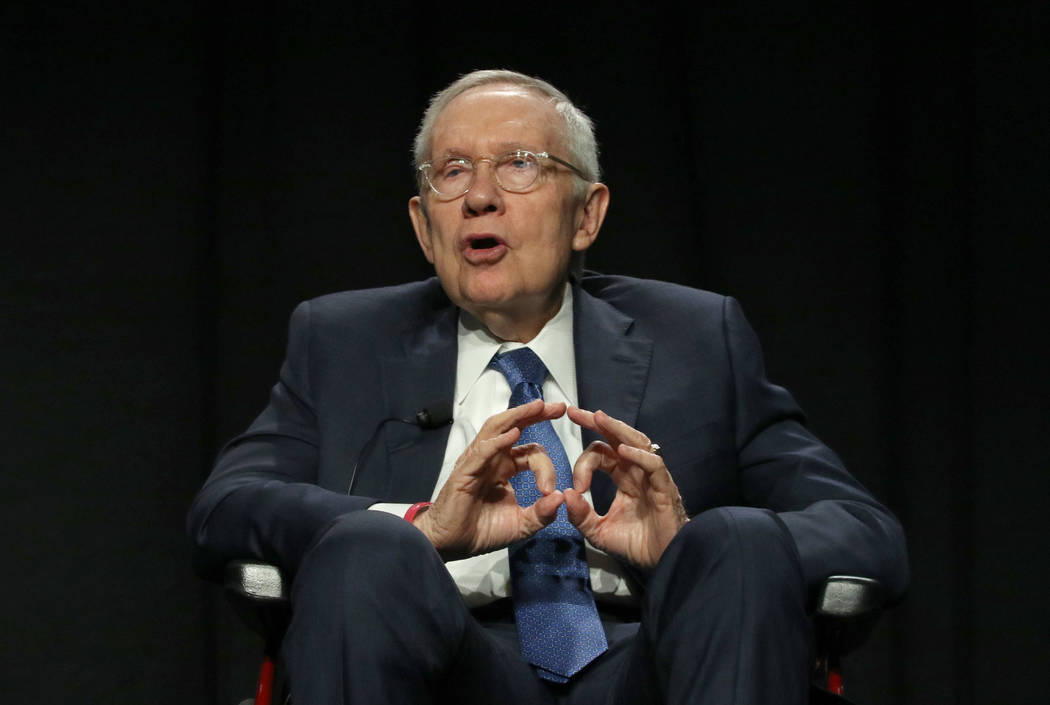Retired for 2 years, Reid finally concerned about debt

Harry Reid spent more than 30 years in Congress and ascended to the most powerful position in the U.S. Senate. Now, two years after retiring, he has finally decided the time is right for someone else to tackle Washington’s spending problem.
“This may sound weird coming from a Democrat,” Mr. Reid said last month at a UNLV symposium, according to KLAS reporter Patrick Walker. “I think we’re at a tipping point … driving ourselves into bankruptcy.” Mr. Reid added that the federal deficit is “going to bury us.”
Nice of him to finally notice. When Mr. Reid was elected to Congress in 1982, the national debt stood at $1.14 trillion, which was 34 percent of gross domestic product. When he left office in 2016, the national debt stood at $20.2 trillion, which was 103 percent of GDP.
It’s worth noting that the primary drivers of the federal debt aren’t defense spending or tax cuts. They’re entitlement programs. In fiscal 2017, 52 percent of federal spending went to Social Security and health care programs such as Medicare and Medicaid. Spending on income security accounted for 17 percent, while national defense was 15 percent. Interest payments consumed 7 percent of spending.
Without reforms, yearly federal budget deficits will soon top $1 trillion. Over the next 10 years, the Heritage Foundation projects that 84 percent of new spending will be in entitlements and interest.
These are staggering numbers, but they aren’t surprising. Fiscal conservatives for decades have been sounding the alarm about federal spending, fueled by retiring Baby Boomers.
Yet when Mr. Reid enjoyed the trappings of political power, he didn’t even bother for four years to ensure the Senate pass a budget. He exploded health care spending — in part by ensuring that able-bodied adults had access to Medicaid. He also insisted that entitlement programs didn’t need reforming.
“One of the things that always troubles me is when we start talking about the debt, the first thing people do is run to Social Security,” Mr. Reid said on “Meet the Press” in 2011. “Social Security is a program that works, and it’s fully funded for the next 40 years.”
The Social Security Administration now projects its reserve fund will run out of money in 2036. Medicare will run out of money by 2026. Asked during that interview if Social Security was in crisis, Reid said, “No, it’s not in crisis. This is something that’s perpetuated by people who don’t like government.”
No doubt profligacy is a bipartisan problem inside the Beltway. But imagine if someone such as Harry Reid had actually won the opportunity to go to Washington, where he could use his vast power to ensure we never reach the “tipping point” that would condemn the nation to an unsustainable fiscal trajectory. Oh … wait. Never mind.